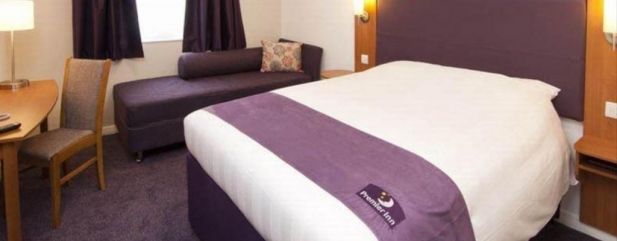Archived article
Please note that tax, investment, pension and ISA rules can change and the information and any views contained in this article may now be inaccurate.
Why these stocks have performed so badly in the coronavirus crisis

While a large part of the public has been panic buying amid the coronavirus pandemic, an even bigger percentage of investors have been doing the opposite.
Panic selling has been rife across stock markets in recent weeks, leading the share prices of many companies to tumble dramatically.
Some of the hardest hit had financial difficulties anyway but others, despite their strong balance sheets, have also been shown no mercy by the market.
PRE-EXISTING PROBLEMS
The two biggest fallers, diamond producer Firestone Diamonds (FDI:AIM) and logistics company Eddie Stobart Logistics (ESL:AIM), had big problems well before the virus outbreak.
Firestone shares have fallen the most, with the company dealing with operational problems its chief executive admitted have had a ‘devastating impact’, as its cash balance fell and sales in its second quarter fell 21%, while the diamond market was in a rut well before the current pandemic.
Eddie Stobart shares have never recovered following their six month suspension from trading, after an accounting review led to a big profit warning and the ousting of its chief executive. Shareholders were also significantly diluted after private equity firm DBAY Adivsors took a 51% stake in exchange for £70m in much-needed liquidity.
Financial services company Finablr (FIN) (now suspended) meanwhile was one of the top five fallers as it dealt with the murky issues of who owns it, as well as major cybersecurity problems at its foreign exchange subsidiary Travelex, while Jet2 owner Dart Group (DTG:AIM) is another big faller thanks to the well-documented problems with airlines.
OIL SECTOR SLIPS UP
As a sector, one of the biggest losers since markets started crashing has been oil companies, with oil prices at their lowest level in 17 years as demand plunges.
This is because travel lockdowns in some of the world’s biggest economies has massively reduced fuel demand as significantly more people stay at home, while the situation has been exacerbated by a price war between Saudi Arabia and Russia, the first and third largest oil producing countries in the world.
The two countries have previously worked together when it comes to crude oil, but fell out because Russia didn’t agree with Saudi Arabia’s calls for further cuts in oil production to boost the price.
Despite the plunging price, neither side is backing down and both are continuing with their plans to boost oil production, meaning the market is becoming flooded while demand plummets.
This help explains why shares in oil giants BP (BP.) and Royal Dutch Shell (RDSB) have more than halved year-to-date, an unprecedented decline.
FTSE 250 oil companies Tullow Oil (TLW) and Energean Oil & Gas (ENOG) have been hit even worse, tumbling 80% and 60% respectively. Companies in this sector with significant borrowings, like Tullow, have been particularly hard hit.
Trade body Oil & Gas UK said plunging demand coupled with the price war has created a situation ‘we have really never seen before’, and expressed fears it could kill the UK’s oil industry.
BOOKIES BATTERED
Meanwhile, lockdowns and widespread job insecurity also mean consumers are spending a lot less.
Betting company William Hill (WMH) has been massively affected by shutdown of professional world sport, with 53% of its 2019 revenue coming from its sports business.
This year would’ve been a big one with Euro 2020 and the Olympics, but both have been postponed, while the Premier League – a great source of income – has no set timeframe to get going again, with the prospect of a shortened season next year also likely to dent revenues. No wonder its share price has plunged 82%.
Another huge faller in the retail space is Laura Ashley (ALY) which has filed for administration.
Perhaps more surprisingly online fashion retailer ASOS (ASC:AIM), has also been hit with its shares plunging almost 65% so far in 2020 despite the fact people can still order products online.
With our social lives potentially on hold for an indefinite amount of time, comments last week from Next (NXT) chief executive Simon Wolfson in his company’s full year results were telling.
He said, ‘It is now very clear that the risk to demand is by far the greatest challenge we face and we need to prepare for a significant downturn in sales for the duration of the pandemic… People do not buy a new outfit to stay at home.’
WHAT’S GOING ON WITH WHITBREAD
Another curious case has been Premier Inn owner Whitbread (WTB), whose share price has also more than halved year-to-date.
The company seems to be practically the only one not to have issued any update in response to the coronavirus pandemic.
This is despite Holiday Inn owner InterContinental Hotels (IHG) saying last Friday that ‘demand for hotels is currently at the lowest level we’ve ever seen’.
The biggest hotel chain in the UK by number of rooms is Premier Inn by some distance, boasting over 79,000 rooms. By comparison, its nearest rival Travelodge has around 40,000, while IHG’s Holiday Inn and Holiday Inn Express have a similar amount combined.
The company hasn’t given the market any sort of update, but told the media all of its Premier Inn hotels will remain open and reiterated its ‘strong financial position’, with net debt down to just £78m, compared to £2.5bn previously, following the sale of Costa Coffee.
Important information:
These articles are provided by Shares magazine which is published by AJ Bell Media, a part of AJ Bell. Shares is not written by AJ Bell.
Shares is provided for your general information and use and is not a personal recommendation to invest. It is not intended to be relied upon by you in making or not making any investment decisions. The investments referred to in these articles will not be suitable for all investors. If in doubt please seek appropriate independent financial advice.
Investors acting on the information in these articles do so at their own risk and AJ Bell Media and its staff do not accept liability for losses suffered by investors as a result of their investment decisions.

 magazine
magazine









